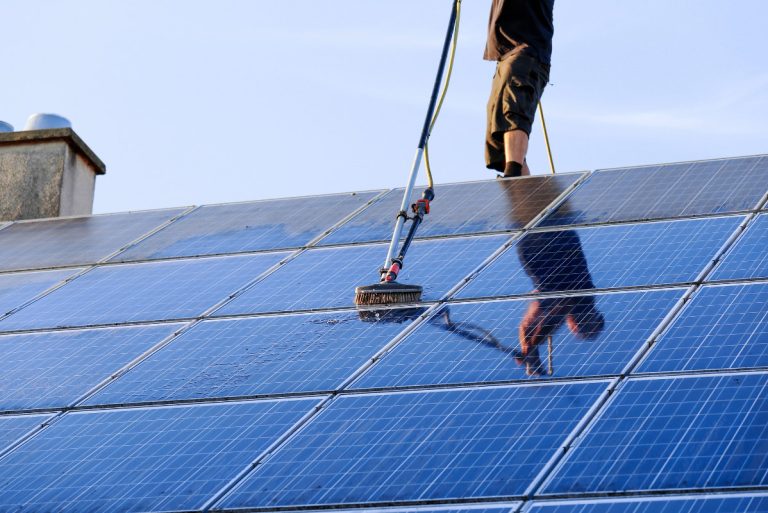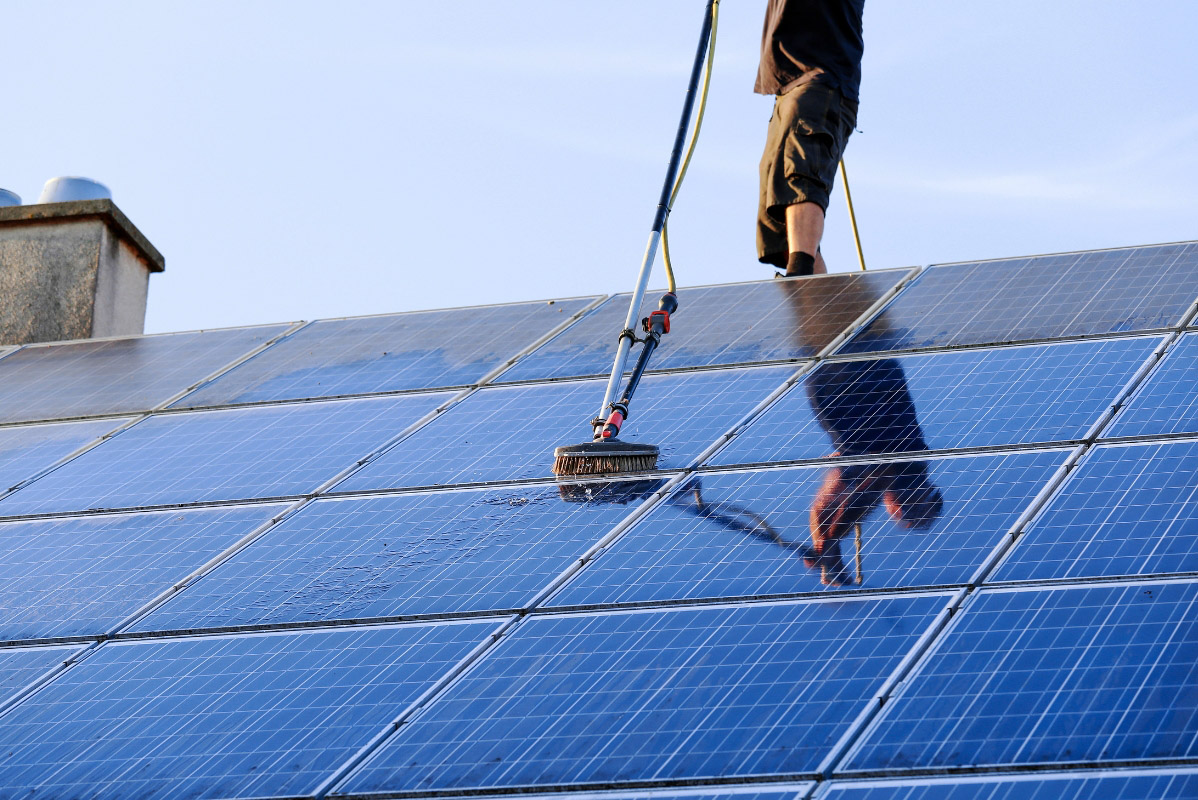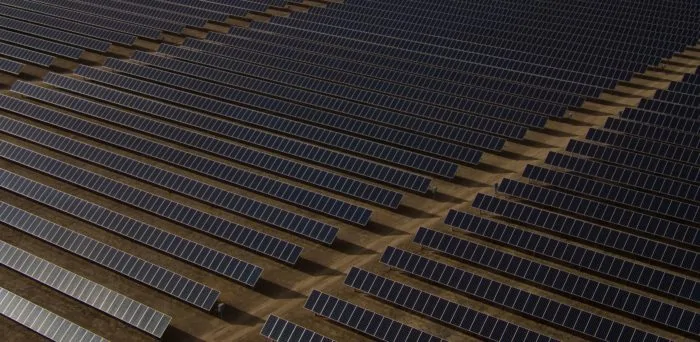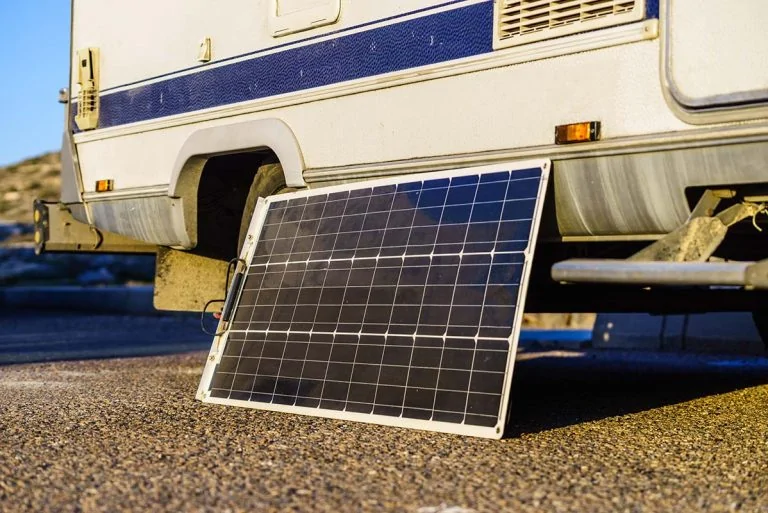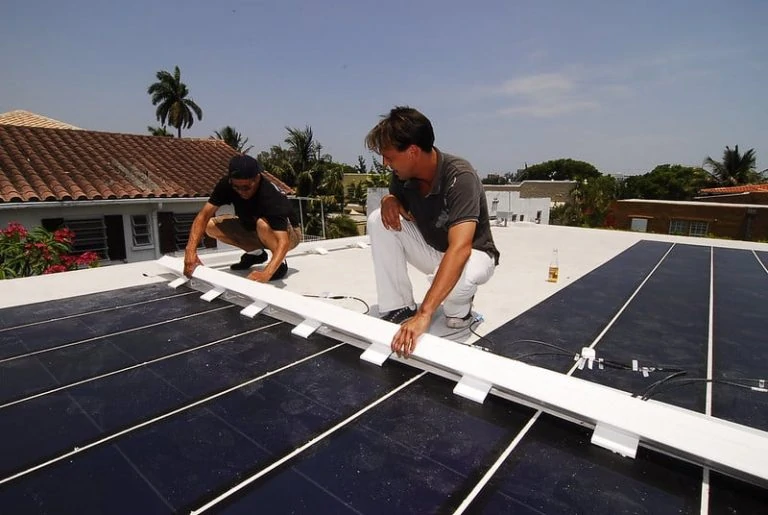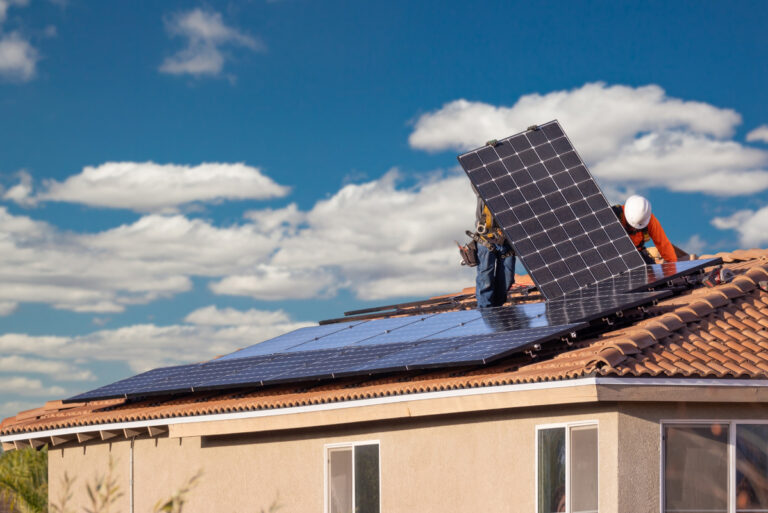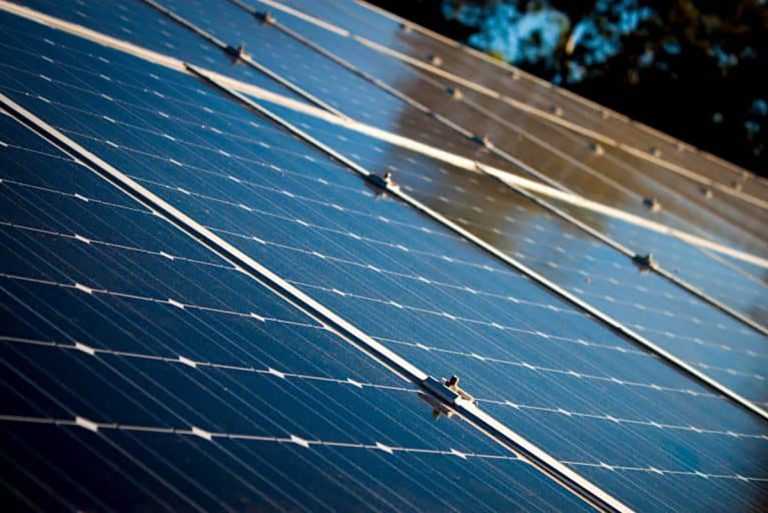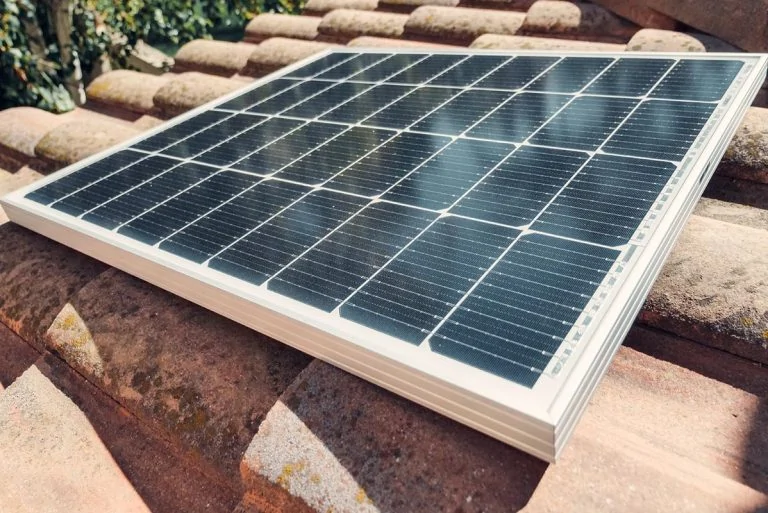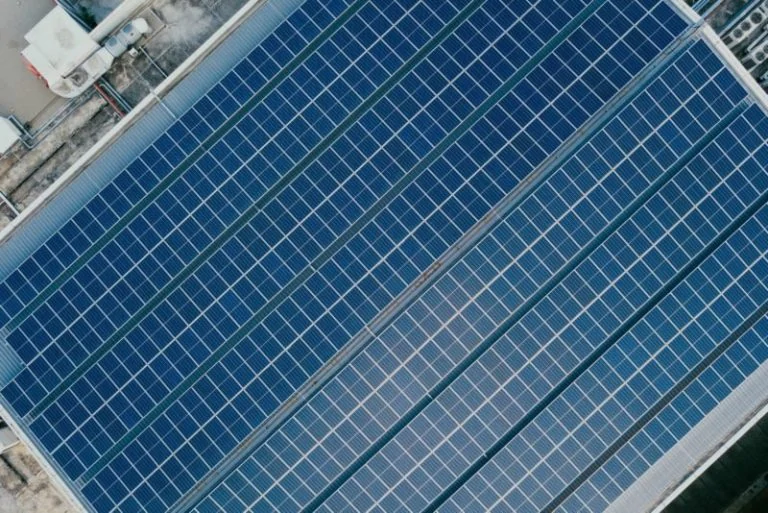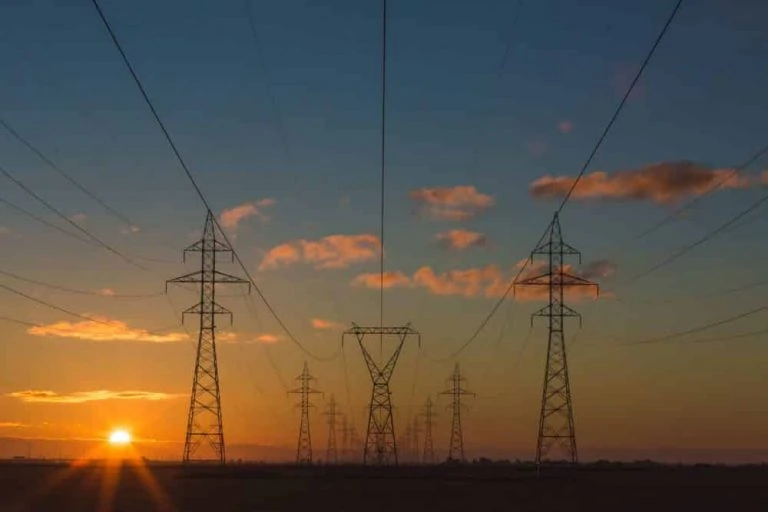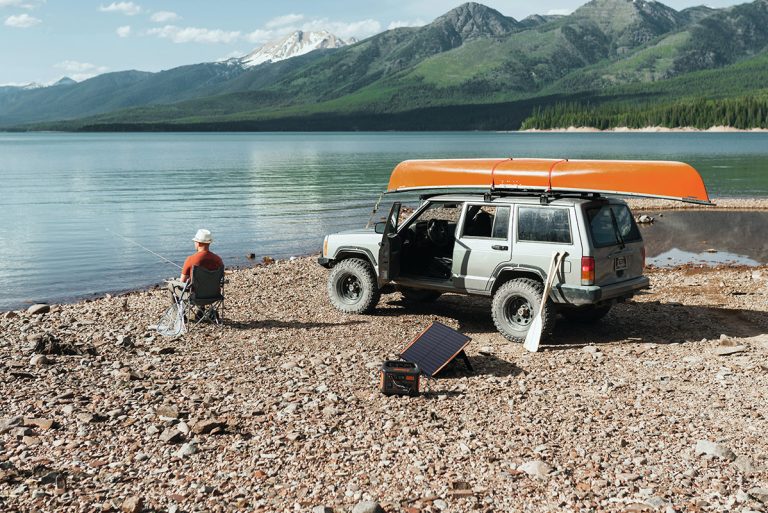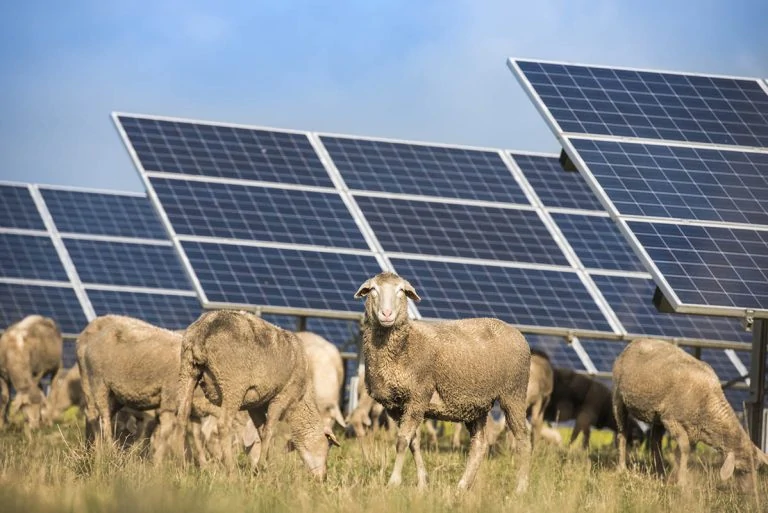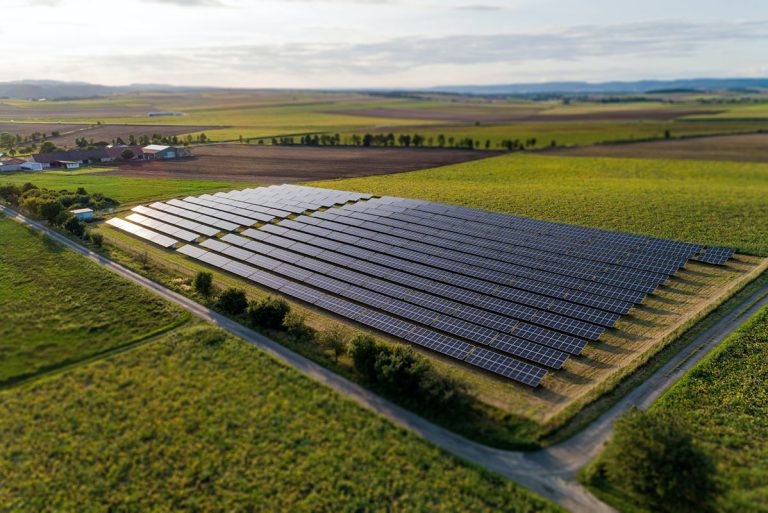Solar panels are an increasingly accessible option for homeowners that want to increase their home’s energy efficiency and reduce utility costs. There are many benefits of switching to solar energy, one being that solar panels require very little maintenance and upkeep other than regular cleanings.
Solar systems need to be cleaned because of the dirt and debris that can accumulate on the surface of solar panels. As a solar system owner, you’ll want to protect your investment and learn everything you need to know about how to clean solar panels most effectively.
Let’s dive in and discuss the best way to clean your solar panels, as well as some additional considerations that are important to keep in mind.
Why should you clean solar panels?
Because solar panels absorb radiation from the sun’s light, anything that covers the surface of a solar panel can impact their performance.
And though solar panels can work well in rain, snow, and cold temperatures, snow, ice, and fallen leaves that block the sun’s rays can reduce their efficiency.
In addition, dust, bird droppings, and other debris can block the sun’s rays from time to time. As this debris accumulates, solar panels can get dirtier and dirtier, and require cleaning every so often.
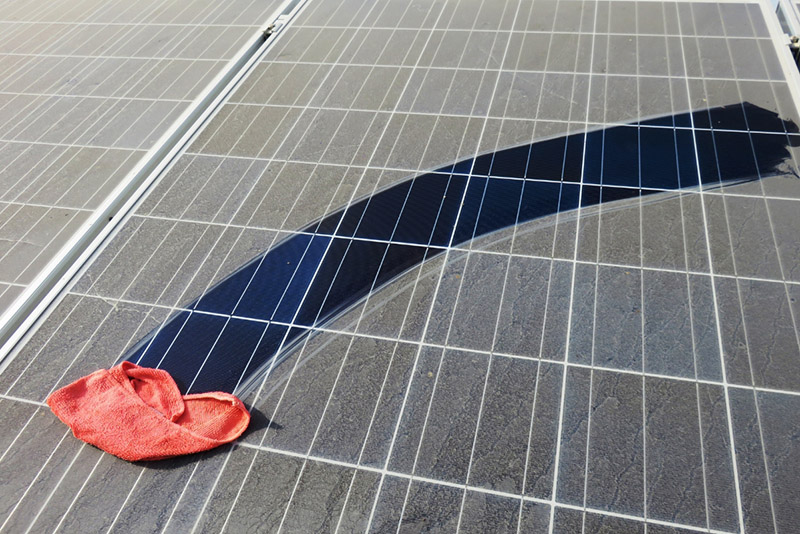
But how much difference can dirt and debris really make on your solar panels? A recent study found that due to the accumulation of dust, the efficiency of solar panels can be reduced by up to 60%.
This study also noted that the average daily energy loss over a year caused by dust deposited on a solar panel’s surface is around 4.4%. This impact can add up, require your solar system to work harder, and cost you more.
Google conducted an experiment to measure the difference that regularly cleaning solar panels makes. After cleaning the panels in a 1.6 MW solar farm, analysts noticed a massive increase in the output of the solar panels.
The findings suggested that solar panel cleaning appears to be the best way to enhance the power generation of a solar system. Panels lose 15-25% of their efficiency when they are dirty, and one study even found that solar panels that are properly maintained perform 3.5% more efficiently.
If you live in an area that gets heavy rains often, you may think that rain cleans your solar panels well enough. However, this is not necessarily the case. When conducting another test on solar panels, researchers found that rain does not usually clean solar panels thoroughly enough.
When we keep our solar panels working at their best, we can expect that they will perform optimally, remain free of any safety hazards, and continue to provide energy to homes for years to come. Thoroughly cleaning your solar panels pays you back in terms of increasing the life span of your system at home.
How to clean solar panels: a step-by-step guide
Cleaning solar panels is similar to cleaning glass windows in that their surface is susceptible to scratches, streaks, and dullness. However, the surface of solar panels is incredibly sensitive because when one solar cell is negatively impacted, the performance of all other cells will follow.
Neglecting to clean your solar panels may end up costing a lot in terms of lowering their efficiency and minimizing the lifespan of a solar panel.
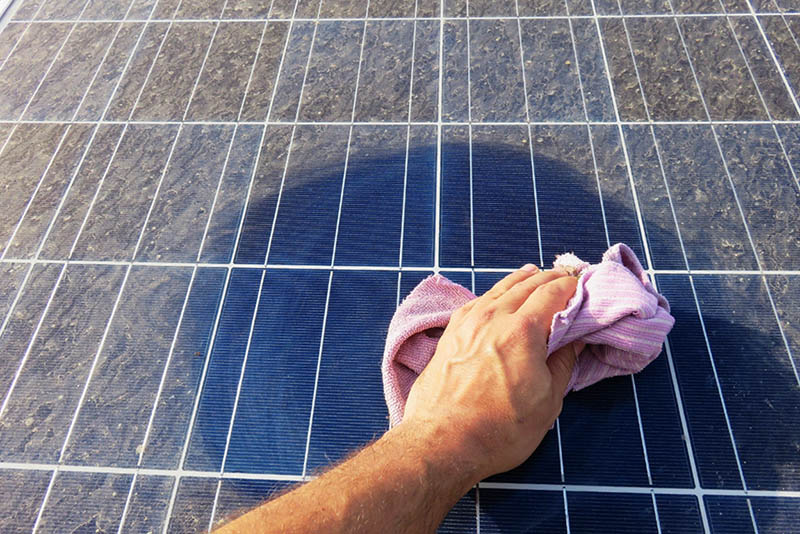
Prior to cleaning your solar panels for the first time, there are a few things to consider.
- Make sure to read the manufacturer’s recommendation for cleaning your specific solar panels. There may be guidelines you should follow regarding the right cleaning solution and supplies.
- On hot days of summer, solar panels can become too hot to touch. Therefore, it’s best to choose a relatively cool day with clear skies to clean your solar panels.
- It’s recommended to clean your solar panels during the early morning or evening because if you clean them during the blazing sunlight, the panels will dry quickly, and smudges will appear on the surface.
- Industry standards recommend cleaning solar panels from the ground whenever possible. Investing in a long-handled brush to scrub your solar panels can be extremely helpful for cleaning them from the ground.
- If you need to climb up to your home’s roof, be careful and use the necessary precautions. Consider hiring a professional cleaning team to help you if it’s too dangerous, and if the panels are installed on a tilted roof, don’t go on the roof without a safety harness.
What you’ll need to clean your solar panels
Before you consider cleaning your solar panels at home, it’s important to know what supplies you’ll need. Most people who clean their solar panels at home can use materials they already have on hand!
In general, you’ll need:
- An expandable hose with a nozzle. A water-fed pole brush can also work well as a water source.
- Cleaning solution. We recommend mixing warm water and a soap/cleaning agent. You can use a spray bottle or towel to apply it to the surface of the panels.
- A sponge or soft brush can also be used to scrub the surface stains.
- A towel or squeegee to clear the surface of the solar panels.
- Gloves and cloth to protect the panels from scratches.
Now that you’ve gathered the proper materials, you can start cleaning your solar panels. Here are three steps that cleaning solar panels usually consist of.
Step 1: clear the surface
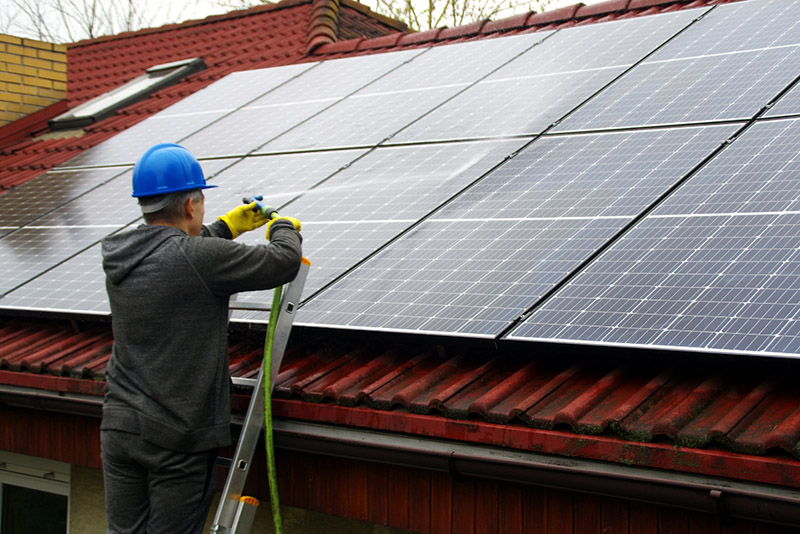
The first step in how to clean solar panels is always to make sure to shut down your solar system before starting the cleaning process.
Try to brush off any loose dirt before washing the panels with water, as it will simplify the whole process and make it easier to clean the tough stains.
Use your garden hose to wash off leaves, excessive dirt, or bird droppings from the solar panels. The selection of an appropriate nozzle attachment on the garden hose is also critical.
The right amount of water pressure can remove most of the dirt and debris from the solar panels. So keep this in mind when you plan to clean your solar panels next.
Step 2: clean your solar panels
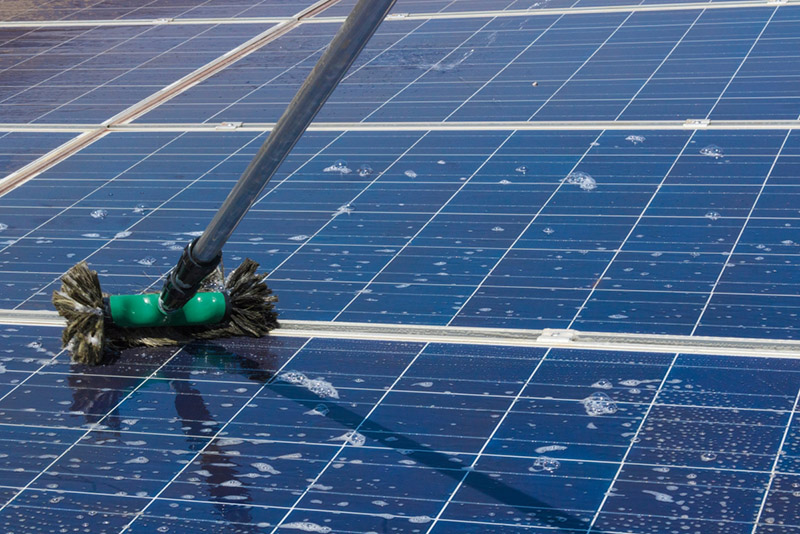
The next step is to clean the panels thoroughly. For this purpose, mix warm water and mild soap – experts recommend only using a mild detergent if some parts of the panels need extra cleaning.
Wipe dirty areas with your cleaning mixture and a cloth-covered sponge or soft-bristled brush safely and thoroughly to prevent strong chemicals from marking your panels.
While cleaning the surface of a solar panel, don’t use abrasive or metal objects. Even minor scratches on the panel can affect its efficiency. The best equipment includes soft cloth, tender brush, gloves, a small squeegee and some soap.
Step 3: dry your solar panels
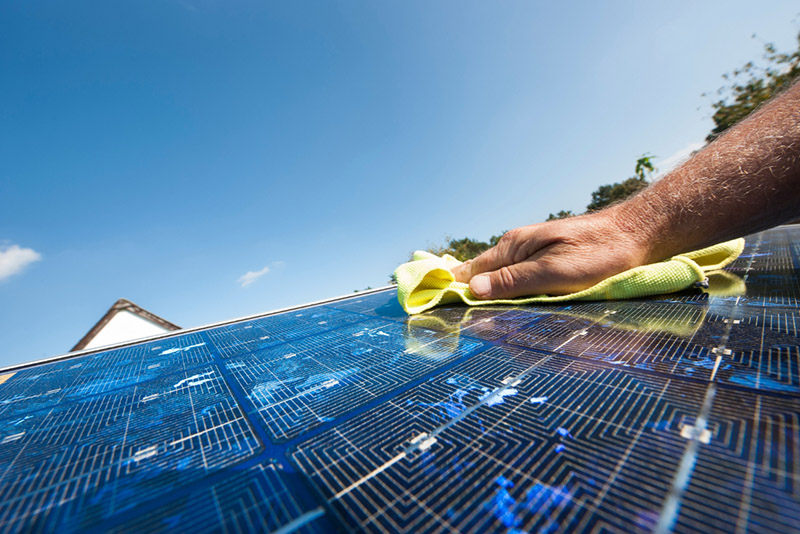
Because we normally use tap water to clean solar panels, which is high in mineral content, it’s important to completely dry solar panels after cleaning them. This will help to avoid leaving mineral deposits over the surface or at the borders of a solar panel.
What to avoid when cleaning solar panels
Though the basics of clearing your solar panels seem pretty straightforward, there are also a few important things to make sure to avoid.
By keeping these considerations in mind, you can complete the cleaning process without causing any damage to your solar panels.
- Avoid washing your solar panel if there is even a minor crack in its surface.
- Don’t use a high-pressure water pump to clean the solar panels.
- Avoid using abrasive detergent, use water and a small amount of mild surface cleaner to remove strong stains.
- Avoid using a hard brush, metal scraper, or abrasive sponge to clean off stubborn grime as this can also damage the surface.
- Don’t exert excessive pressure while cleaning the surface of the solar panels.
- Avoid wearing metallic jewelry when cleaning your solar panels, as it could scratch the surface.
Following these guidelines will ensure that your solar panels aren’t damaged, scratched, or left with streaks on their surface.
Safety rules to follow while cleaning your solar panels
If you cannot clean your solar panels from the ground and are prepared to clean them from the roof, safety should always be your first priority. You should ideally have the proper training and safety equipment to access your rooftop.
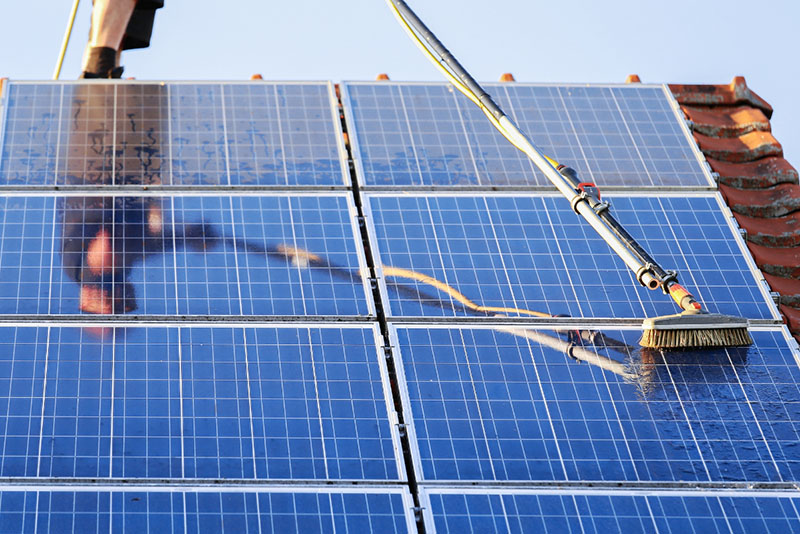
Here are a few safety rules to remember when cleaning solar panels, especially if they’re located on your roof, and you’re planning to clean them safely:
- Don’t clean solar panels on your roof during bad weather, such as strong winds or heavy rains.
- Make sure the roof is dry and non-slippery.
- Avoid using solar panels as a way to secure your position on the roof.
- The roof must be strong enough to bear your weight.
- Always wear the right safety gear, including gloves, a helmet, non-slip shoes, and a face mask.
- While cleaning the solar panels, don’t work alone. Ask one of your family members or friends to stay close to you while you are performing this task.
If you’re not comfortable or qualified to access your roof, you can still keep your solar panels clean by hiring a professional cleaner. Cleaning solar panels can be a tricky job for those who aren’t great with heights!
Should you consider hiring a professional to clean your solar panels?
If your solar panels are located in a hard-to-reach place, or are high up on the roof of your house, do not attempt to access your rooftop (unless you have the right safety equipment and training). Cleaning solar panels is simple, but accessing them usually isn’t.
Consider hiring a professional team to help clean your solar panels if you:
- Live in a heavily polluted or coastal area
- Have trees near your solar panels that shed their leaves or flowers frequently
- Notice a particularly tough buildup on your panels such as bird droppings
- Are elderly or not trained to get up on your roof safely
It’s important to exercise caution when attempting to clean your solar panels, but to be totally safe, it can be worth the investment in a professional team.
How do you know when it’s time to clean your solar panels?
In general, there is no specific periodic time frame necessary for cleaning your solar panels. Some geographic locations and climates require frequent cleaning based on the climate, weather conditions, and pollution levels.
For example, places like Australia experience long periods of drought, during which dust buildup and other pollution can accumulate on solar panels over time. If you live in a more moderate climate, it can be difficult to know just when you should prioritize cleaning your solar panels.
Fortunately, the best way to know when it’s time to clean your panels is to monitor the power output changes in your solar system. Analyze the efficiency of your system at different time intervals, and take note of when it works best.
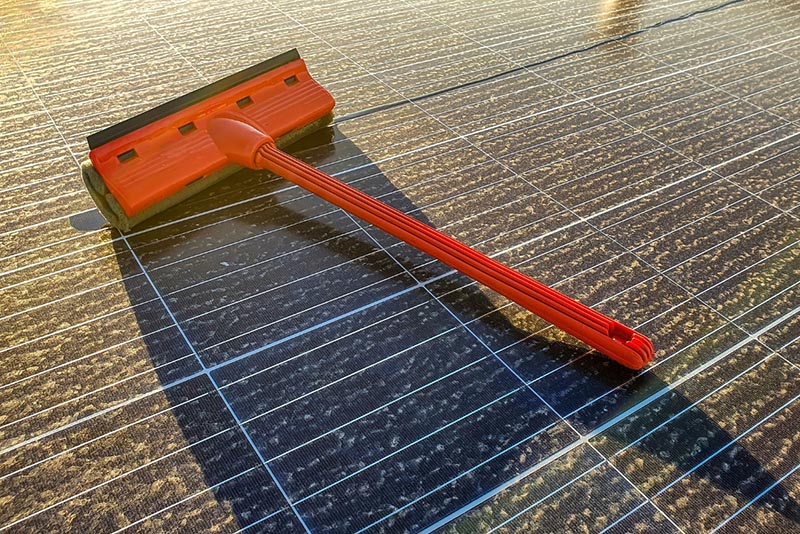
It’s also important to keep an eye on the appearance of the solar panels: if they appear dull and less shiny, it’s time to clean them. The appearance of solar panels varies in color depending on whether they are monocrystalline vs polycrystalline.
When it comes to cleaning solar panels, it depends largely on the place of installation. If you live in an area where heavy dust storms are common, you must regularly clean solar panels on your roof.
Similarly, if the panels receive excessive bird droppings, there is no other choice but to clean them after short intervals. Solar panels do not require much maintenance otherwise; however, cleaning is an integral part of solar panel maintenance that you can’t take lightly.
To know whether your panels are dirty enough to be cleaned, try to monitor their surface once in a week. If you observe large amounts of dirt, leaves, or bird droppings, it’s time to clean your solar panel.
This will help increase your capacity factor and production. Here is a guide to how solar power production works.
Final thoughts on how to clean solar panels
The installation of a solar panel system for your home is a significant investment that demands regular maintenance and cleaning. Since you don’t need to dedicate a lot of time or money to otherwise maintaining your solar system, there is no reason to neglect the important task of cleaning it.
However, determining how to clean solar panels can be more complicated than you may think. By keeping safety, weather, and the right cleaning supplies and process in mind, you can find success in cleaning your solar panels yourself.
Make sure to give your panels attention by periodically scrubbing off the dust, dirt, or debris. It will help your system to last longer, look cleaner, and perform better. As a result, you can save money on your energy bills.
